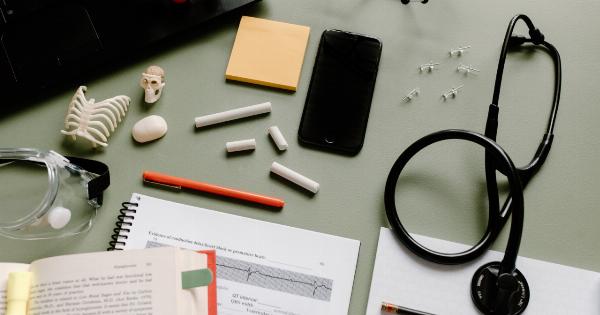Sex is an integral part of human life and affects several bodily functions, including the brain. The brain is responsible for regulating sexual behavior, and certain brain regions play a crucial role in sexual arousal, desire, and satisfaction.
How Does Sexual Attraction Work?
When a person is sexually attracted to someone, the brain goes through a series of chemical and emotional responses. The hypothalamus, a region in the brain responsible for regulating sexual behavior, is activated when sexual attraction is felt.
This region releases several neurotransmitters such as dopamine, oxytocin, and serotonin. Dopamine is responsible for feelings of pleasure and reward and reinforces the brain’s association between sexual behavior and pleasure.
Oxytocin, commonly referred to as the ‘cuddle hormone’, is released during sexual arousal and is associated with bonding and social connection.
Serotonin is a neurotransmitter that plays a crucial role in regulating mood and emotions and can influence sexual desire and behavior.
Sexual Arousal
Sexual arousal is a complex process that involves the activation of several brain regions. The hypothalamus plays a crucial role in triggering sexual arousal by releasing gonadotropin-releasing hormone (GnRH).
This hormone stimulates the release of luteinizing hormone (LH) and follicle-stimulating hormone (FSH), which are responsible for the production of sex hormones such as testosterone and estrogen.
These hormones then stimulate sexual organs and initiate sexual arousal.
In addition to the release of GnRH, several other brain regions such as the amygdala, hippocampus, and cingulate cortex are also activated during sexual arousal.
Orgasm and the Brain
Orgasm is the peak of sexual pleasure and is accompanied by a series of physiological responses such as muscle contractions, increased heart rate, and intense pleasure.
The orgasmic phase is associated with the release of several neurotransmitters such as dopamine, oxytocin, and endorphins.
Endorphins are natural painkillers and are responsible for the intense feelings of pleasure and relaxation associated with orgasm.
The release of neurotransmitters during orgasm also reinforces the brain’s association between sexual behavior and pleasure, further increasing sexual desire and arousal.
Sexual Orientation and the Brain
Sexual orientation is a complex and multifaceted phenomenon that is determined by several factors, including biological, psychological, and social factors.
The brain plays a crucial role in determining sexual orientation. Research has shown that certain brain regions, such as the hypothalamus and amygdala, are different in homosexual and heterosexual individuals.
Studies have also shown that exposure to certain hormones during fetal development can influence sexual orientation.
For example, exposure to high levels of testosterone in the womb may increase the likelihood of developing a homosexual orientation in males.
Sex and the Aging Brain
As we age, our sexual desire and function can change due to several factors such as hormonal changes, chronic health conditions, and medications.
Research has shown that brain changes associated with aging can also affect sexual function. Certain brain regions responsible for sexual arousal and desire may become less responsive with age, leading to decreased sexual desire and function.
Conclusion
Sex and the brain are closely linked, and several brain regions play a crucial role in regulating sexual desire, arousal, and satisfaction.
Understanding the complex interplay between the brain and sexual behavior can help improve our overall sexual health and well-being.


























